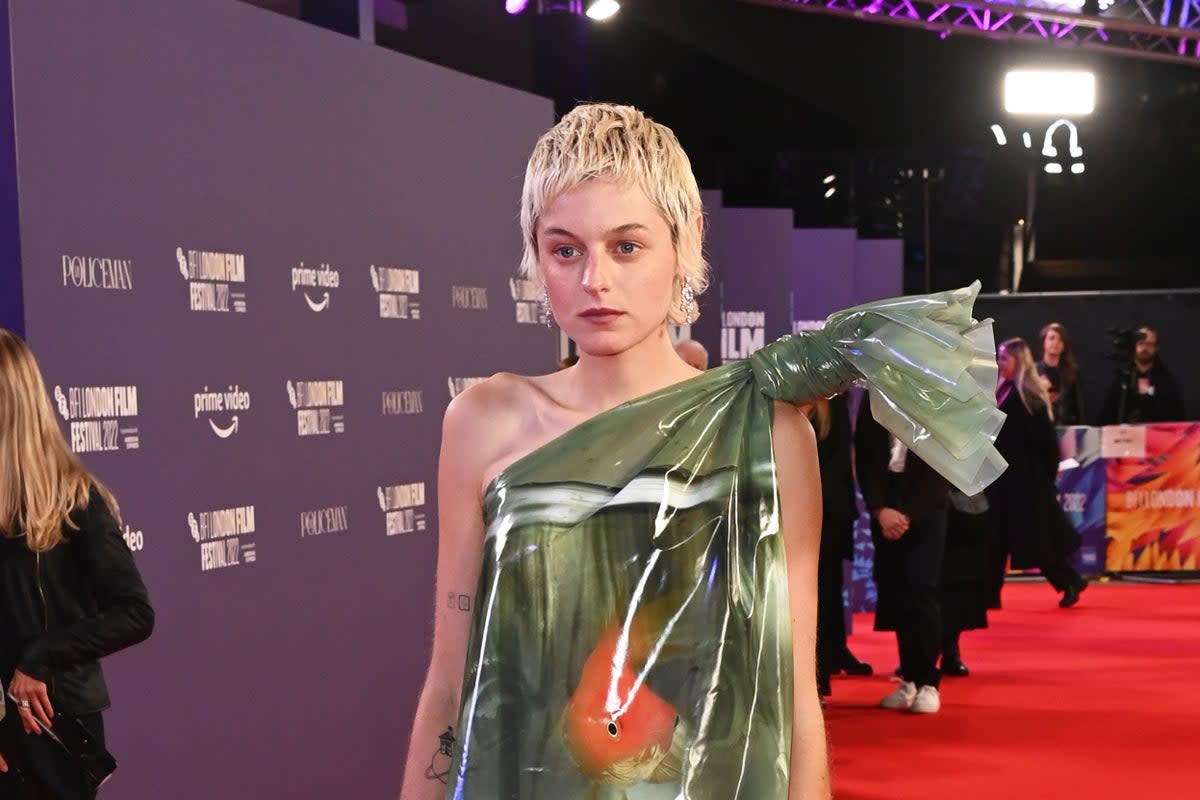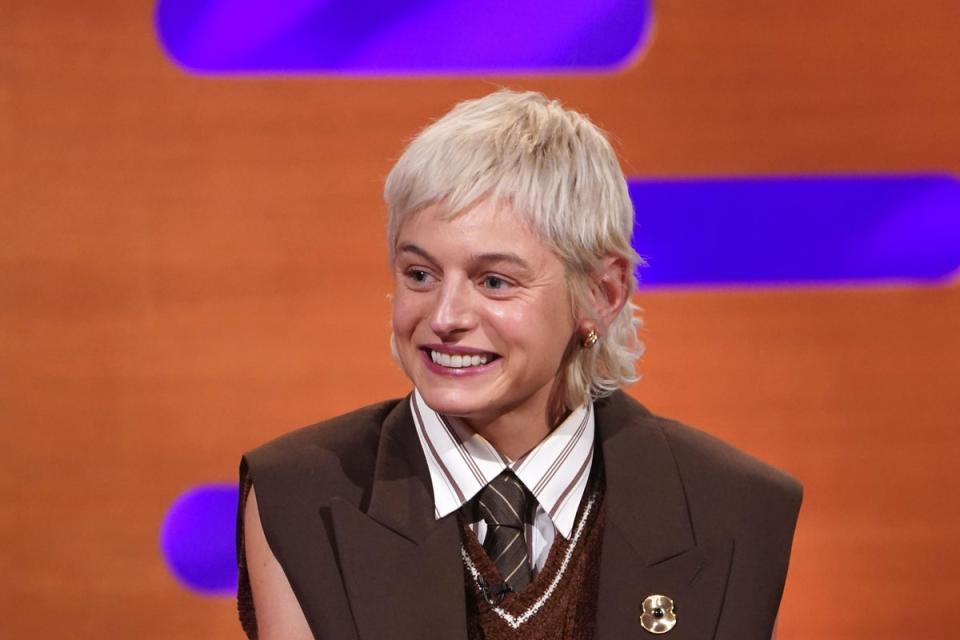Emma Corrin discusses challenges of ‘discovering’ gender identity in film industry

Emma Corrin has candidly discussed the difficulties of navigating their gender identity in the film industry.
The 26-year-old, who goes by they/them pronouns, has publicly identified as non-binary since 2021, and has shared details of their gender identity journey on social media.
Now, the star has elaborated on the struggles theyâve faced in the public sphere while âembracingâ their identity in a new interview with the New York Times.
The Crown actor said: âMy identity and being nonbinary is an embrace of many different parts of myself, the masculine and the feminine and everything in between.
âItâs hard to be discovering something in yourself at the same time [as] youâre navigating an industry that demands a lot of you, in terms of knowing who you are.â

Last month, the British star said they hoped that the Oscars will opt for gender neutral categories at future ceremonies, explaining they did not believe the existing awards show categories were âinclusive enoughâ.
Corrin has won a Golden Globe award for best actress for their performance as Princess Diana in series four of the hit Netflix drama, and has starred in two high-profile films this year, My Policeman and Lady Chatterleyâs Lover.
Speaking to the BBCâs Today Programme about the possibility of gender neutral categories at major awards shows, they said: âI hope for a future in which that happens.
âI donât think the categories are inclusive enough at the moment. Itâs about everyone being able to feel acknowledged and represented.â
The actor added that more representation was needed within roles in the entertainment industry, to encourage âmore of an urgencyâ around addressing the subject.

âWhen it comes to categories, do we need to make it specific as to whether youâre being nominated for a female role or a male role?â they said.
âYou can discuss awards and the representation there, but really the conversation needs to be about having more representation in the material itself, in the content that we are seeing for non-binary people, for queer people, for trans people, because then I think that will change a lot.
âWhen those parts come up, meaning more people and more actors are playing those roles, then I think there will be more of an urgency with which these questions will be addressed.â

 Yahoo News
Yahoo News 
